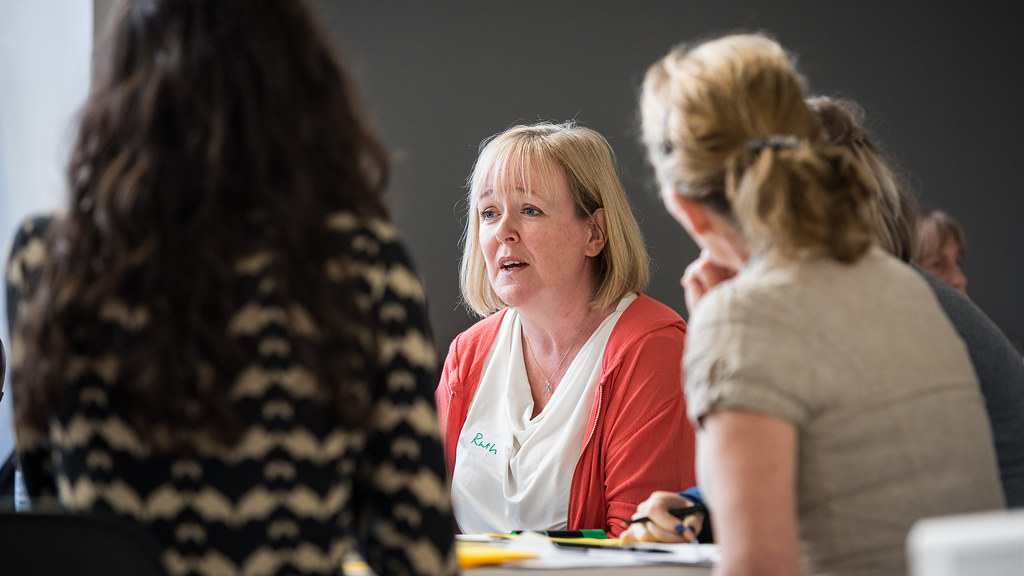Overview
Over the course of her doctoral studies into the experiences of the friends of those who self-harm, Hannah identified a lack of support provision for this group. Working with local support services and this target group through a number of focus groups Hannah co-produced a tool to support friends of people who self-harm.
Engagement type - Working Together, Listening
Public group - Friends of people who self-harm and practitioners at self-harm support services
Engagement method - Focus groups
Themes - Health and wellbeing, mental health, young people
Project team
Dr Hannah Heath, Department of Psychology
Purpose of the engagement
The project aimed address the lack of support provision and resources for friends of people who self-harm. was developed.
Project background
Self-harm is a key healthcare issue facing young people. Hannah’s research focused on the experiences of the friends of those who self-harm, and those who support them. She was interested in exploring how young people make sense of supporting a friend who self-harms, and what impact this has on the friendship. Her research demonstrated that friends often do not know how to support their friend, and often take on excessive levels of responsibility for their friend’s welfare.
Engagement approach
Hannah wanted to ensure that the resource she created would be used and be of value by friends who support people who self-harm. She decided to take a co-production approach to developing this resource over two phases using focus groups made up of the target group and local support services. This approach would involve two phases, an initial phase creating the resource together and second phase refining the prototype or draft resrouce.
Focus groups
Over the course of the project Hannah delivered eight focus groups over two phases.
Creating phase
Working with local support services Hannah had engaged during her research she recruited 24 participants made up of friends of people who self-harm and support service practitioners. During this 'creating' phase Hannah hosted five focus groups to seek sought input and responses from participants based on their experiences on specific topics that emerged from her research. She later analysed this input and used it to create content for the resource. Also as part of this first phase, Hannah sought feedback on the nature of the type of resource that would be most useful for the participants.
Refining phase
Taking the responses from the focus groups from this first phase, Hannah developed a draft resource in collaboration with some of the specialist support staff she’d recruited as part of the project. In order to test this resource, Hannah convened three more focus groups and presented the resource and asked for feedback from the participants. Taking the input of the groups into consideration Hannah developed a final version of the resource, A Tool to Support Friends of People who Self-harm.
Evaluation
Hannah used a self-reflective approach to evaluating the project as well as capturing feedback from participants through informal conversations. Reflecting her experiences Hannah:
- developed new contacts and enlarged her network of practitioners from self-harm support services
- developed new skills in design software
- gained confidence in her skills at communicating her research to non-academic groups
- raised the profile of her research though participation in a local radio show on BCfm promoting the tool
The support staff who participated also found it a valuable experience to reflect on their own practice:
'Taking part in this project was a really valuable exercise for our organisation - it gave us a chance to share our expertise and spend time thinking about new areas and other aspects of our work.'
Top tips
Co-production recognises participants as experts of their own circumstances and involves them in generating research knowledge alongside the researcher. If you’re interested in public engagement projects that involve co-production, Hannah has a top tip that might be useful:
'Be prepared for no-shows; assume that for every focus group you organise at least two people will not show up. Think through how you can adapt activities in the light of no-shows.'
